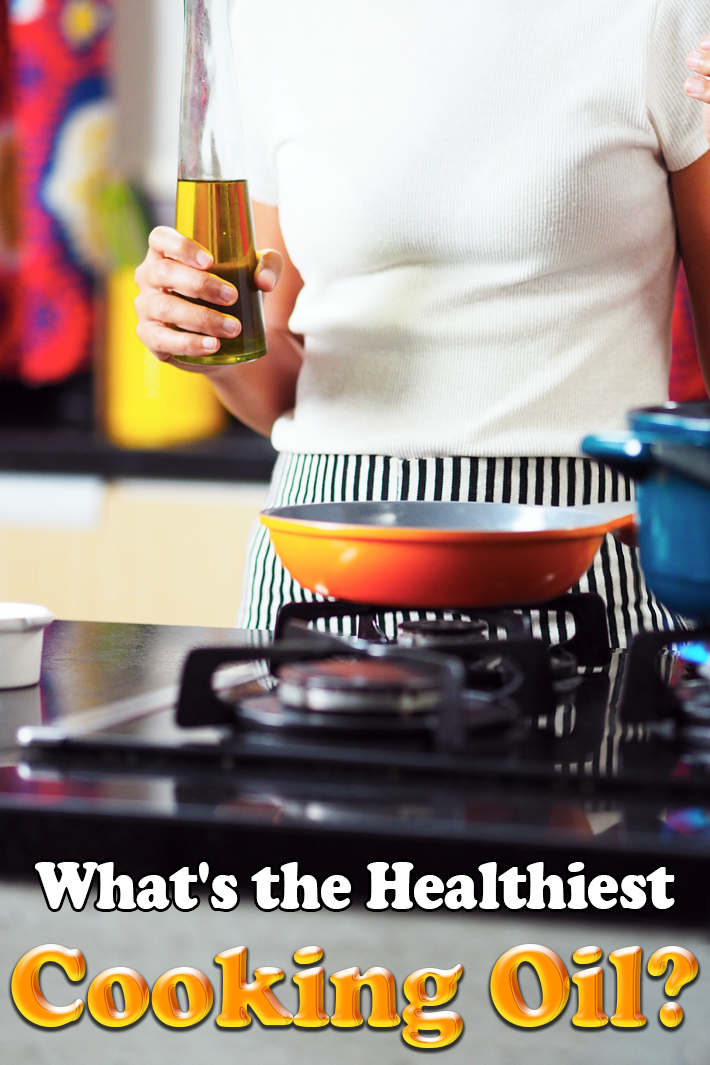
Wander down the cooking oil aisle of the supermarket and you’ll be swimming in lipid-based lingo, with modifiers like cold-pressed, extra-virgin, omega-rich, and superfood all describing a substance not known as a health food: fat. Isn’t a fat just a fat, no matter the source?
Well, yes and no. While every tablespoon of fat contains about 120 calories, an oil’s source and composition play a huge role in your health. Dr. Steven Masley and certified nutrition specialist Jonny Bowden, PhD, authors of Smart Fat, shared some pointers to help you decide which cooking oil is right for you.
Basic categories of fat
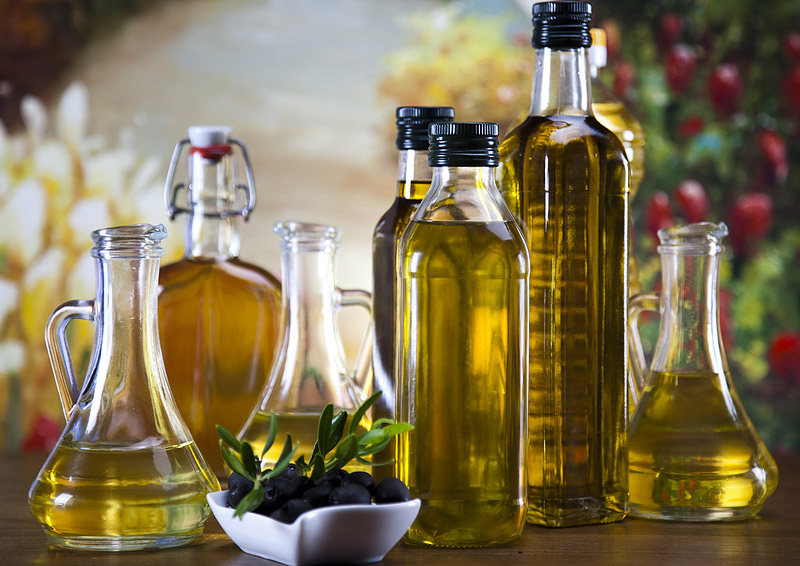
Fats fall into three categories: saturated, monounsaturated, and polyunsaturated. Fats from animals, such as butter, are generally saturated. Vegetable-based oils (and some marine oils), on the other hand, are usually either polyunsaturated or monounsaturated, with the former giving you those much-touted omega-3 fatty acids.
Nearly all cooking oils contain a mixture of saturated, monounsaturated, and polyunsaturated fats, but are categorized based on which fat dominates the chemical makeup.
Fat is essential for your health

Fat not only adds flavor to your food, it plays a vital role in your health. “The reputation of fat as something ‘bad’ for you is completely out of date. It was a myth from the very beginning,” says Bowden. “Fat is necessary to absorb vitamins A, E, K, and D, not to mention the full range of carotenoids. Fat balances hormones, gives us energy, cushions our organs, and blunts our blood sugar.”
In order to cash in on these benefits, though, you’ll need to choose cooking oils based on two things: source and smoke point.
The source really matters
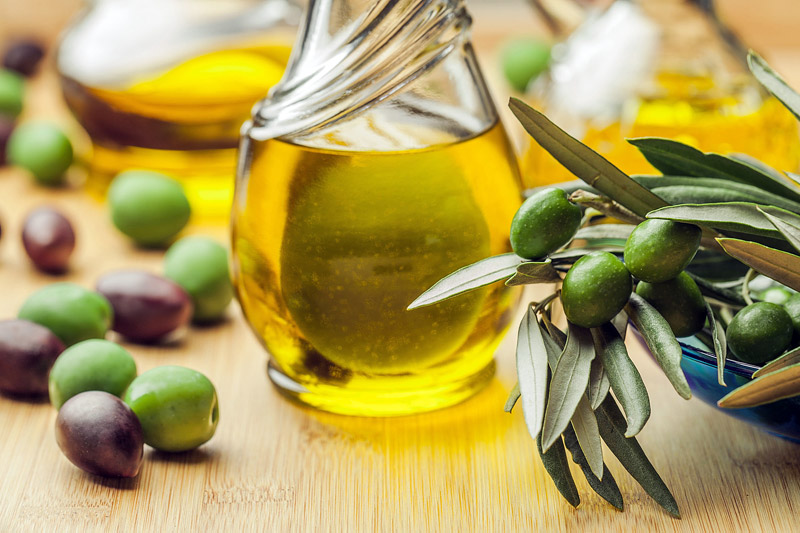
According to Dr. Masley and Bowden, there are good (smart) fats, bad (dumb) fats, and neutral fats. “Smart fats are of proven clinical benefit. They have been studied in humans in clinical trials and shown to provide real benefits,” says Dr. Masley, who cites health advantages like reduced inflammation (an issue that causes accelerated aging) and improved insulin control.
Smart fats are sourced from olives, avocados, nuts, and seeds. Bad fats, which have been shown to be harmful to the human body, include trans fats (aka hydrogenated or partially hydrogenated oils), highly refined vegetable oils (such as soybean oil), and fats high in omega-6s (such as unrefined safflower oil). Neutral fats, which include some saturated fats (like palm oil) and animal fats (butter or lard) from grass-fed, organically raised animals, might not do the same sort of damage that trans fats do, but may not actively benefit your health, either.
Some fats can’t stand the kitchen heat

So you should go with olive oil and call it a day, right? It’s never that easy; cooking preparation throws a monkey wrench into the whole equation. “It’s important to mention that even a smart fat can be easily made into a dumb fat by cooking it at the wrong temperature,” warns Bowden.
When cooking oil reaches a certain temperature (called the smoke point), the molecular structures of the fats form aldehydes, materials that cause an increased risk of cancer and heart disease when consumed or inhaled — you can check out a list of smoke points if you’re concerned about where you stand. When you’re deep-frying, you need to select an cooking oil that can withstand high heat. Canola oil, for example, has a smoke point of at least 400 degrees Fahrenheit. For sauteing, try virgin (not extra-virgin) olive oil or hazelnut oil. For drizzling on salads, any smart oil in your favorite flavor (walnut oil, anyone?) will do.
It’s about the ratio, not the amount, of omegas
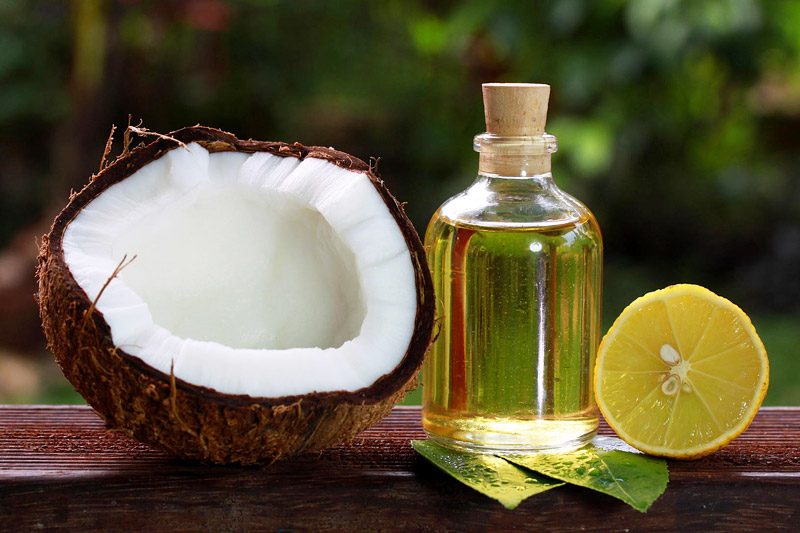
When shopping for cooking oil, prioritize smart fats, and always consider the oil’s threshold for heat. You should also think about incorporating cooking oil that have a higher ratio of omega-3s to omega-6s. “Refined omega-6s deserve an honorable mention in the hall of shame,” says Bowden, referring to oils from corn and sunflower seeds. “While some omega-6 is necessary (it’s an essential fat), what makes it toxic is the amount we consume. We currently consume at least 16 times more omega-6 than omega-3.” Ideally, consume omega-6 in a 1:1 ratio with omega-3.
Cooking Oil Processing Methods
Confused by all the processing methods and terms? Here’s your cheat sheet:
- Expeller-pressed: Oil is mechanically extracted by squeezing nuts, seeds, fruits, legumes, or grains under very high pressure, without using solvents.
- Cold-pressed: Oil is expeller-pressed, but friction is reduced so the temperature is kept below 120 degrees during processing.
- Refined: Tiny particles may remain in extracted oils; to make refined oils, particles are filtered out. Refined oils may also be bleached and deodorized to create a neutral flavor and color.
- Unrefined: Tiny particles remain in the cooking oil, enhancing flavor, aroma, and nutritional value. Because particulate matter lowers an oil’s smoke point, unrefined oils should only be used unheated or for very low-heat applications.
- Heat extraction: Pressed oils may also be heated during the extraction process to break down the material and allow greater quantities of oil to be extracted.
- Chemical extraction: Solvents like hexane are used to break down plant walls and allow oils to be more easily extracted.
So which cooking oils should I buy?
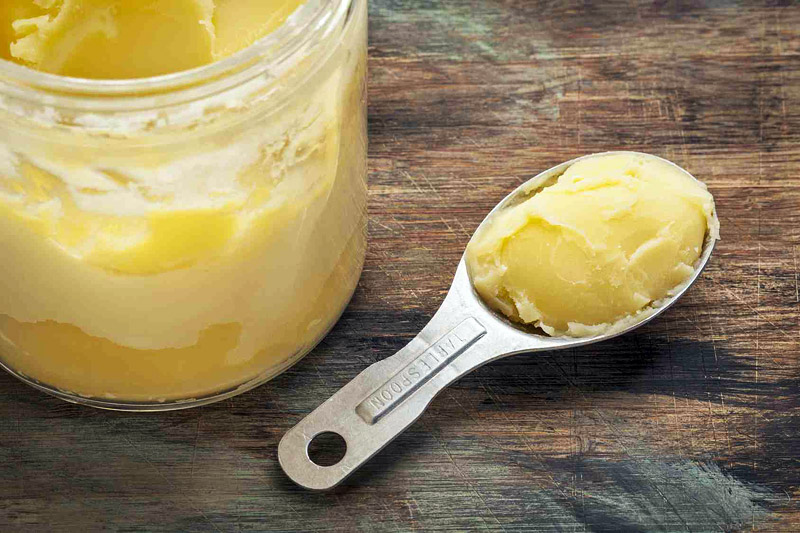
A well-stocked pantry includes at least three cooking oils: one for high heat, one for low-medium heat, and one for eating fresh. “Extra-virgin olive oil is fantastic for salads — delicious and healthy — but you can’t cook with it,” says Dr. Masley. “Avocado oil is great at high-heat cooking, but it doesn’t have much flavor.” Enhance the flavor and the health benefits by splashing some sesame oil, coconut oil, or extra-virgin olive oil on foods cooked in avocado oil.
As for which oils to leave at the store, Bowden offers some solid advice: “Avoid refined supermarket oils. Ease up on the corn, soybean, canola, and safflower oils, and start using more healthy saturated fats, like coconut oil, palm oil, or ghee. Use some omega-6 oils if you like, but make sure they’re unrefined and cold-pressed. And always check the smoke point.”
Almond Oil
- Made by expeller pressing the oil in ground almonds; available refined and unrefined.
- Benefits: Increases healthy HDL cholesterol while lowering harmful LDL, supports immune function and liver health, alleviates irritable bowel syndrome, and may reduce colon cancer risk.
- Smoke point: 420 degrees
- Flavor: Light, clean, and mildly sweet; unrefined has a nutty, toasty flavor with buttery undertones.
- Uses: Refined‘s high smoke point makes it best for stir-frying, roasting, grilling, and other high-heat applications. Use unrefined for salad dressings, in dips, and to drizzle on cooked dishes.
- Price: $8 to $10 for 16 ounces
- Fats breakdown: 70% mono, 17% poly, 8% sat
Avocado Oil
- Made by grinding and then expeller pressing avocado flesh; available refined and unrefined.
- Benefits: Decreases inflammation and improves cholesterol balance; may increase absorption of antioxidant carotenoids.
- Smoke point: 520 degrees
- Flavor: Rich, clean taste and lush mouthfeel. Unrefined is emerald green, with a buttery flavor and grassy undertones. Refined has a mild, neutral flavor with the slightest hint of avocado taste.
- Uses: Refined is best for high-heat grilling, frying, or roasting. Use unrefined for salad dressing, in pesto, or as a dip for bread. Refrigerate.
- Price: $10 to $12 for 8 ounces
- Fats breakdown: 71% mono, 14% poly, 12% sat
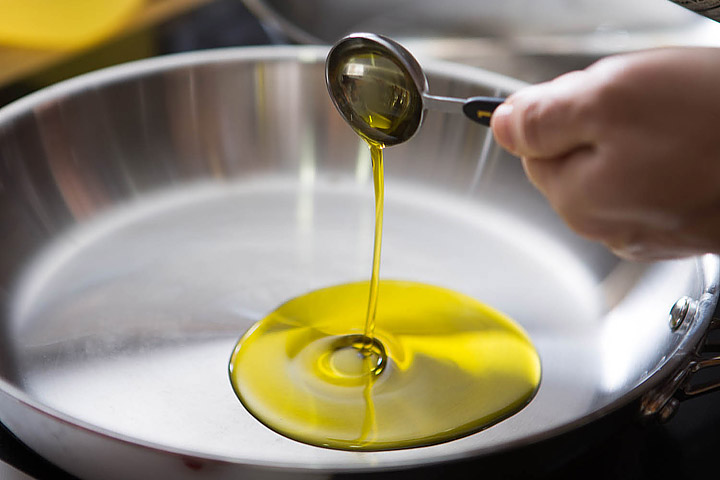
Canola Oil
- Made from rapeseed, a mustard-family plant; usually chemically extracted using solvents, but also expeller-pressed. To avoid GMOs, buy organic; 80 percent of canola is genetically modified.
- Benefits: Lowers total and LDL cholesterol and triglycerides; improves insulin sensitivity.
- Smoke point: 400 degrees
- Flavor: Extremely neutral but provides a dense mouthfeel; pale color.
- Uses: Good for high-heat roasting, broiling, baking, and stir-frying, or as a blank canvas for creating mayonnaise or salad dressings.
- Price: $8 to $10 for 1 liter
- Fats breakdown: 63% mono, 28% poly, 7% sat
Coconut Oil
- White and solid at room temperature; clear and liquid when warmed. Virgin coconut oil is expeller-pressed; also available refined.
- Benefits: Antibacterial, antifungal, and antiviral; may reduce total and LDL cholesterol while raising HDL cholesterol.
- Smoke point: 350 degrees (unrefined); 400 degrees (refined)
- Flavor: Unrefined has a creamy, oily texture, caramel-buttery flavor, and rich scent and taste. Refined is more neutral.
- Uses: Refined works great for sautéing, stir-frying, roasting, and grilling. Use unrefined in baked goods, Asian-inspired dishes, or as a spread.
- Price: $7 to $14 for 16 ounces
- Fats breakdown: 6% mono, 2% poly, 87% sat
Flaxseed Oil
- Made by pressing crushed brown flaxseeds, a process that removes healthy lignans. Some brands add lignans back to make “high-lignan” flaxseed oil.
- Benefits: High in alpha-linolenic acid (ALA); may reduce risk of diabetes, cancer, arthritis, osteoporosis, and autoimmune and neurological disorders.
- Smoke point: Do not heat
- Flavor: Warm and nutty with bitter undertones and an aggressive, but not unpleasant, aroma.
- Uses: Drizzle on oatmeal or cooked vegetables, use in salad dressings, and toss with quinoa or other grains. Refrigerate.
- Price: $8 to $9 for 16 ounces
- Fats breakdown: 19% mono, 68% poly, 9% sat
Grape Seed Oil
- Extracted from grape seeds (generally from wine grapes), typically via chemical solvents; to avoid solvents, choose expeller-pressed.
- Benefits: High in vitamin E; however, contains high levels of omega-6s and polycyclic aromatic hydrocarbons (PAHs), a result of the extraction process.
- Smoke point: Do not heat.
- Flavor: Neutral in flavor and aroma, with a rich, heavy texture.
- Uses: Good for moisture-rich baking, dressings, and mayonnaise, where a neutral flavor is needed.
- Price: $8 to $12 for 16 ounces
- Fats breakdown: 17% mono, 71% poly, 12% sat
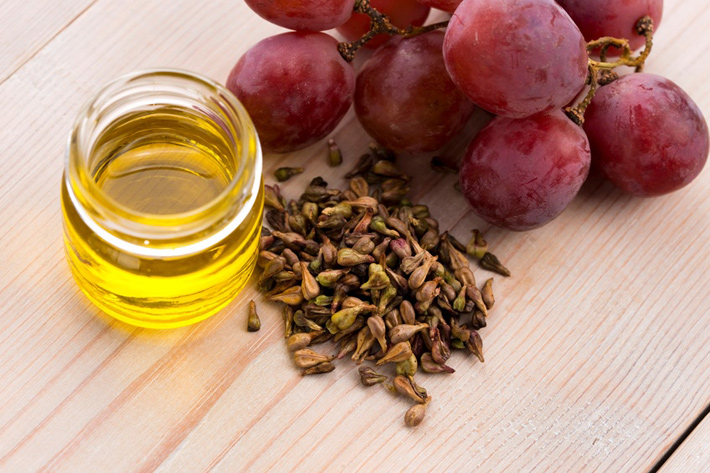
Hemp Oil
- Made by cold-pressing Cannabis sativa seeds (part of the marijuana family but with no THC, the psychoactive component).
- Benefits: Contains chlorophyll and toco-pherols, antioxidants that support immune function and protect the heart.
- Smoke point: Do not heat.
- Flavor: Earthy, grassy flavor with mushroom undertones; deep green color.
- Uses: Use in dips, dressings, and pesto, or drizzle on steamed kale or sweet potatoes. Refrigerate.
- Price: $12 to $16 for 16 ounces
- Fats breakdown: 14% mono, 77% poly, 6% sat
Olive Oil
- Extra-virgin is cold-pressed from the first olive pressing; “virgin” or “pure” is heat-extracted. Organic or California Olive Oil Council (COOC) labels signal no adulteration with cheap oils.
- Benefits: Increases heart-protective HDL cholesterol; polyphenol antioxidants promote bone growth and reduce cancer risk; rich in vitamin K.
- Smoke point: 420 degrees/ extra virgin 320 degrees
- Flavor: Extra-virgin, from the first pressing, has leafy, herbal, peppery under-tones. All varieties offer robust flavor, rich texture, and a green-gold hue.
- Uses: Use this cooking oil for grilling, baking, and sautéing. Drizzle extra-virgin on tomatoes and steamed greens. Use any kind in salad dressings.
- Price: $9 to $15 for 1 liter (pure); $12 to $20 for 1 liter (extra-virgin)
- Fats breakdown: 73% mono, 11% poly, 14% sat
Rice Bran Oil
- Extracted from the germ and inner husk of rice grains; most kinds are chemically extracted. Look for cold-pressed varieties, which are not heated during extraction.
- Benefits: Contains vitamin E tocotrienols that lower LDL cholesterol, stem inflammation, and reduce cancer risk; rich in vitamin K.
- Smoke point: 490 degrees
- Flavor: Light and clean, with a fresh, neutral flavor and delicate aroma.
- Uses: High-heat stir-frying, grilling, roasting or sautéing, or in dressings or mayonnaise when a neutral flavor is desired.
- Price: $7 to $9 for 16 ounces
- Fats breakdown: 39% mono, 35% poly, 20% sat
Sesame Oil
- Made by expeller-pressing or chemically extracting oil from sesame seeds; available refined or unrefined. Seeds roasted before pressing yield fragrant, toasted sesame oil.
- Benefits: Rich in anti-oxidants and abundant in lignans and phenols, which may ease diabetes symptoms.
- Smoke point: 410 degrees
- Flavor: Light and nutty; toasted sesame oil is dark brown, with a distinctive roasted scent.
- Uses: Ideal for broiling and high-temperature stir-frying. Unrefined works well for light sautées, tossed with grains, or in salad dressings. Lightly drizzle toasted oil over finished dishes.
- Price: $8 to $10 for 16 ounces
- Fats breakdown: 40% mono, 42% poly, 14% sat
Walnut Oil
- Made from dried and expeller-pressed walnuts; available refined and unrefined.
- Benefits: Contains omega-3 fats that protect against prostate cancer and diabetes, reduce inflammation, promote heart health, and stave off bone loss.
- Smoke point: 400 degrees
- Flavor: Bold and pleasantly heavy, with a decadent nut flavor and earthy notes.
- Uses: Refined cooking oil is good for moderate-heat sautéeing and baking. Use unrefined as a finishing oil: Toss with cooked beets, add to salad dressings, and drizzle over cream soups. Refrigerate.
- Price: $10 to $14 for 8 ounces
- Fats breakdown: 23% mono, 63% poly, 9% sat
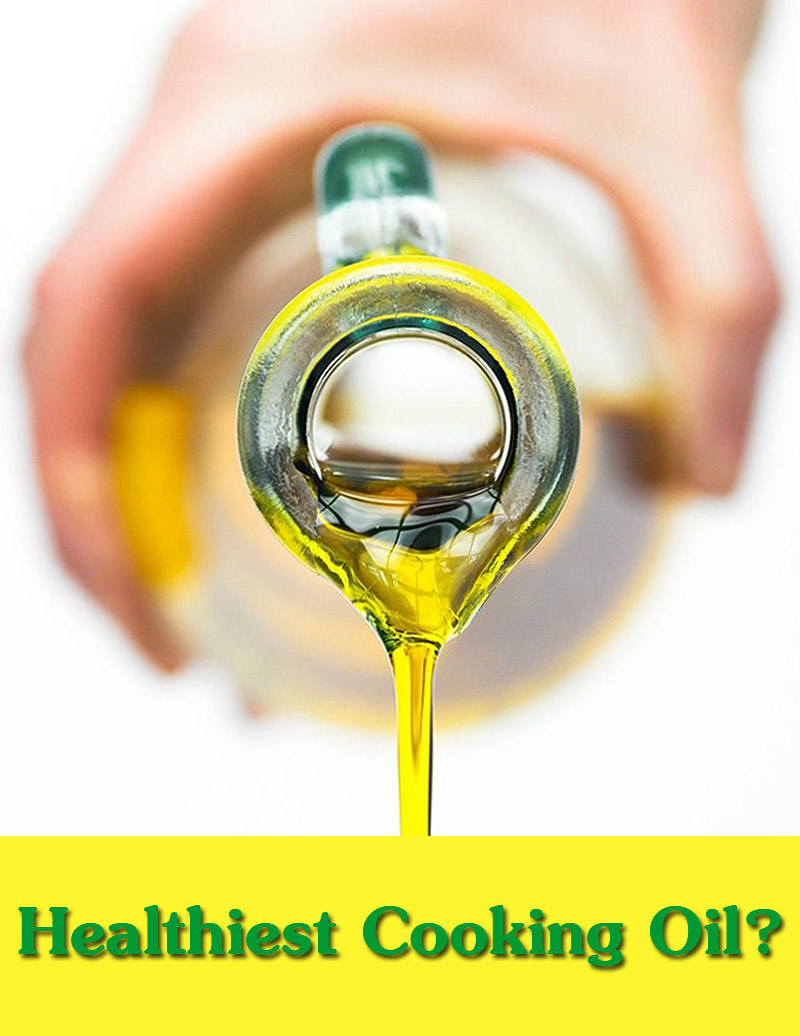

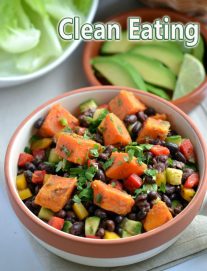


Leave a Reply